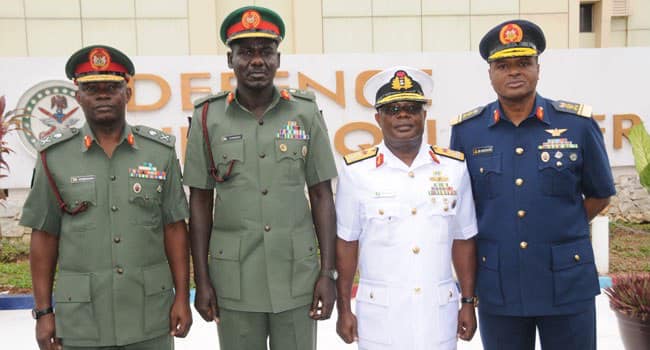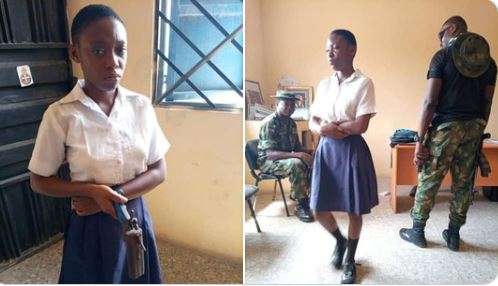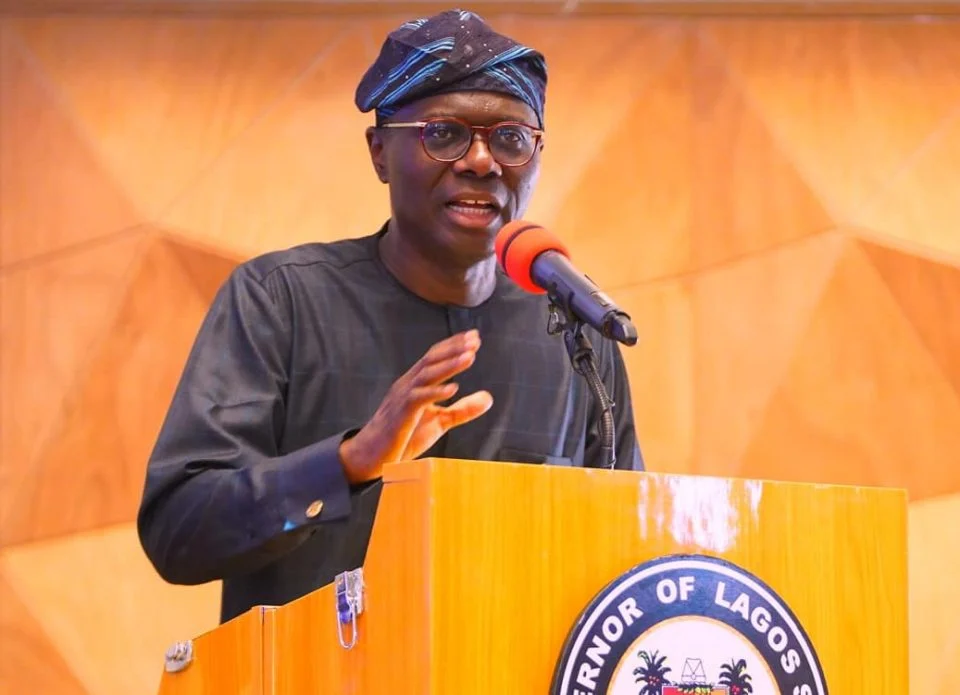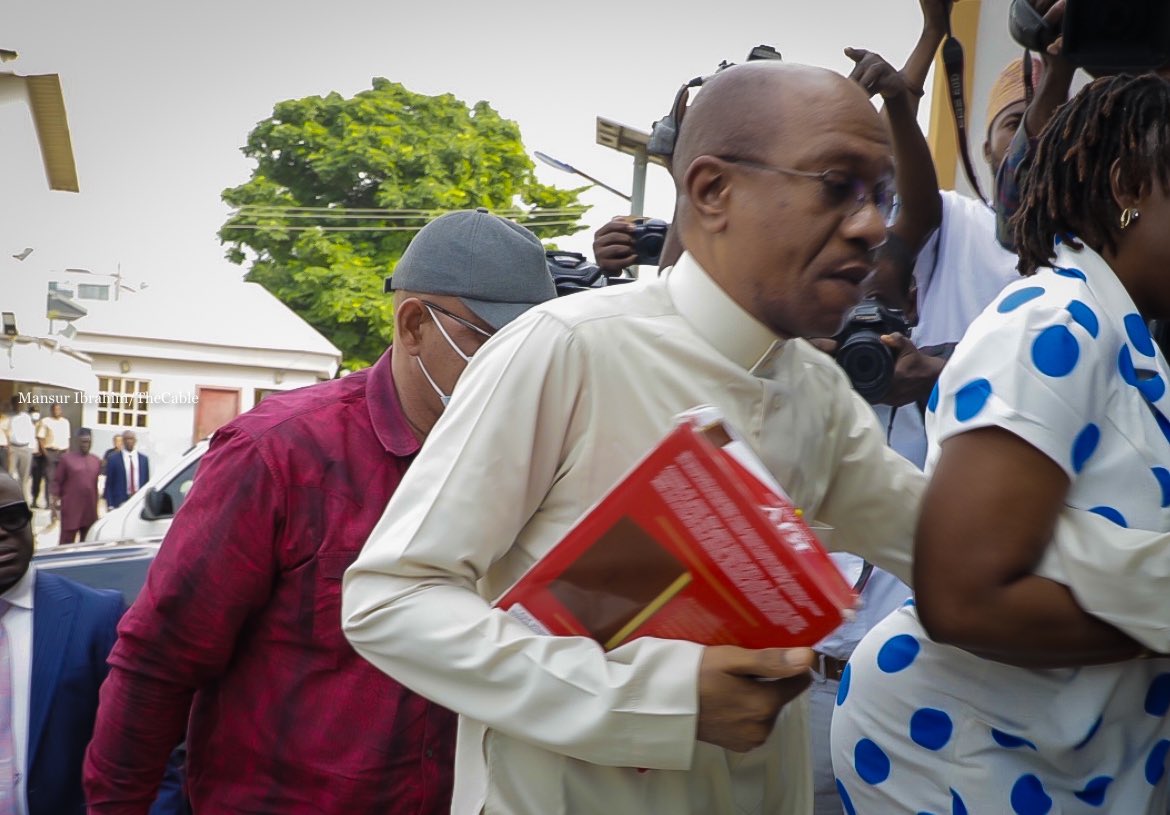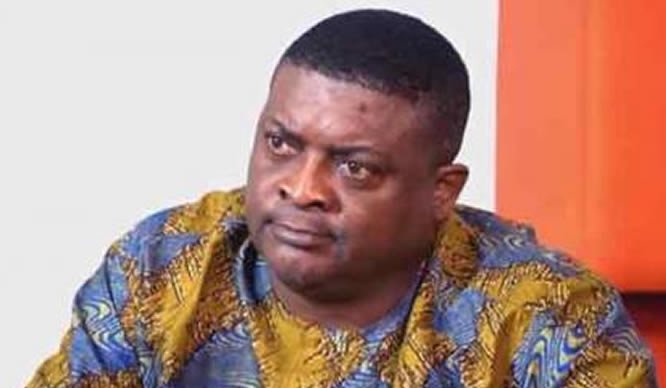Ex-Service Chiefs list factors for failed anti-insurgency war
The immediate past service chiefs reviewed the security architecture of the country on Thursday and submitted that military action alone could not end the current war against insurgency, banditry and other criminal activities.
The retired military chiefs stated this while answering questions from members of the Senate Committee on Foreign Affairs, led by Senator Mohammed Bulkachuwa, who screened them as ambassadorial nominees.
The Senate President, Ahman Lawan had on February 10, directed the committee to screen General Abayomi Olonisakin, Lt. Gen. Tukur Buratai (retd), Vice Admiral Ibok Ekwe Ibas (retd), Air Marshal Sadique Abubakar (retd), and Air Marshal Muhammad S. Usman (retd) as non-career ambassadors designate.
The military generals enumerated their challenges and their inabilities to win the war against terror and banditry during their 66 months tenure in office.
Olonisakin, while defending his efforts, waging war against terror said he later realized that the solution to insecurity was multi-pronged.
He said, “We talk about conventional warfare and asymmetric warfare. we are talking about hybrid warfare where everyone is involved. It is not about kinetics.
“Kinetics give only 35% success rate in any war we are fighting. It is a national approach that must be properly galvanized for us to actually surmount insecurity”.
Olonisakin also told the lawmakers that the issue of banditry, kidnapping and other criminal activities being witnessed in the various forest reserves across the country would not have occurred if state governors had listened to him.
He said, “Three years ago, i conducted a research on the forests in the country. I realized that we have over 1,000 forest reserves. I sent a team to Kenya.
“Members of the team went to Kenya and brought out a paper and i said then that our next crisis would be in the forests.
“Some governors were invited and we told them because most of the forests are the prerogative of states.
“The states took over all the forest reserves. I told them that we have to protect the forests. We have to send troops to protect the forests. We did the research in 2018 for six months.
“You cannot have enough weapons, personnel and so on but there are issues we must address and then it has to be all about the nation”.
Buratai said despite efforts being made to end insurgency, many Nigerians were still harbouring terrorists and criminals in their domain and shielding them from security operatives.
He stated, “As far as diplomatic aspect is concerned, in the Lake Chad Basin Commission, we have recorded tremendous success, but the frustration is that of asymmetric profile. It is a complex operation, it has permeated the society in Libya, Cameroon and Chad.
“It is something that started more than 30, 40 years ago. They have won the communities to their side, that is why they keep Boko Haram insurgents in their communities.
“So, it is a complex situation that requires a whole government approach to solve, military action is just one aspect.
“One mistake that we have been making is that we believe that only the military can solve this. It is not. The military cannot solve this, in the first place, it wasn’t the military that started it. There were political, social and economical aspects that needed to be addressed before it”.
Buratai said that he made tremendous impact during his tenure to curtail insurgency and criminality.
Other nominees also answered questions from the panel members and the Chairman said their performance would be contained in the report that would be submitted to the Senate in plenary next week.

